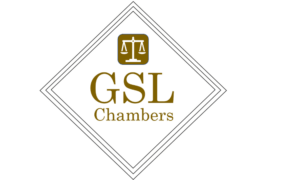Intermediary Liabilities under the Information Technology (Intermediary Guidelines and Digital Media Ethics Code), 2021
By Arjun Garg, Nirmal Prasad and Nandini Jaswal
Intermediaries in India
An intermediary has been defined as any entity that on behalf of another person receives, stores or transmits that record or provides any service with reference to that record and includes telecom service providers, web-housing service providers, search engines, online payment sites, online auction sites, online market places and cyber cafes”.[1] Intermediaries provide or facilitate access to the internet and connectivity to the users. Different types of intermediaries include those who facilitate navigation on the internet, online services allowing storage and access to online content, online versions of day-to-day offline transactions which require communication such as Uber or Airbnb and online versions of traditional commercial institutions focusing majorly on online transactions.[2]
Information Technology (Intermediary Guidelines and Digital Media Ethics Code) Rules, 2021
With the advent of new Rules, several new provisions have been brought into effect, specifically to regulate Social Media, Over The Top (OTT) platforms and digital news.
Under the Rules, news and OTT platforms can now be placed within the definition of intermediaries, Hence, OTT platforms have been given guidelines with the object of keeping their content under the radar of censorship to reduce depiction of illegal or harmful substances, imitable behavior, nudity, language, sex, violence, fear, threat, horror and other such concerns.[3]
Moreover, the Rules have mandated OTT Platforms to classify the content into age-based categories- U (Universal), U/A 7+, U/A 13+, U/A 16+ and A (Adult). They will have to implement a parental lock system for categories U/A 13+ and above. Intermediaries are also instructed to take care while publishing content affecting the sovereignty and integrity of India or threatens/endangers the security of the country or which is detrimental to India’s friendly relations with foreign countries[4]. The code of ethics has also instructed the platforms to make sure that the content available on screen is socially and religiously at par and should not hurt others sentiments.
In order to ensure smooth functioning of the rules, intermediaries must observe due diligence while performing functions and adhere to the Rules prescribed. As per the new Rules an Intermediary has to set up a grievance redressal mechanism. According to rule 5(1), a Chief Compliance Officer, Nodal Officer and a Resident Grievance Officer shall be appointed to ensure that the guidelines prescribed are duly adhered to. Rule 8 formulates a three-tier structure for ensuring observance and adherence.
The grievance redressal mechanism mandates intermediaries to have Grievance Officers to acknowledge complaints, orders, notices or directions. If intermediaries receive complaints in relation to content depicting sexual acts or conduct in the nature of impersonation in an electronic form, including artificially morphed images, reasonable and practicable measures to remove or disable access to such content which is hosted, stored, published or transmitted is required.
Various compliance measures have been inserted, which are mandatory for the intermediaries. The addition of such mandatory measures would surely increase operational costs and burdens upon the intermediaries. As a consequence the costs would be burdened on to the consumer, thereby increasing the cost of the service that is provided by the intermediary. The intermediaries will have to bear a significant amount of cost to meet the expenses of running such platforms which would be transferred to the customers.
The censorship for prevent spreading of fake news, or to restrict direct accessibility to young children was necessary in a demography such as India especially keeping in view the easy access to internet. However, whether this transgresses in the freedom of choice of others, and whether it infringes on the right of such digital platforms to conduct business is yet to be seen. Debates are also rising on the issue of any kind of censorship on digital platforms since internet is considered to be free from such shackles. Also, how effectively can such control be exercised if the server of such digital platforms are outside India, is also an issue which remains unanswered. The Rules would also have to meet the legal scrutiny since the Executive has taken the route of delegated legislation rather than parliamentary legislation.
Arjun Garg is Co-founding Partner of GSL Chambers and an Advocate on Record of Supreme Court of India. Nirmal is an Associate with GSL Chambers. Nandini is a Third Year Law Student of Guru Gobind Singh Indraprastha University, Dwarka, Delhi.
[1] Section 2(w), The Information Technology Act, 2000, No. 21 of 2000, Acts of Parliament, 2000.
[2] Information Technology Law, Diane Rowland, Uta Kohl and Andrew Charlesworth, Fifth Edition 2017.
[3] Rule 2(j), Information Technology (Guidelines for Intermediaries and Digital Media Ethics Code) Rules, 2021.
[4] Code of Ethics, Information Technology (Guidelines for Intermediaries and Digital Media Ethics Code) Rules, 2021.




